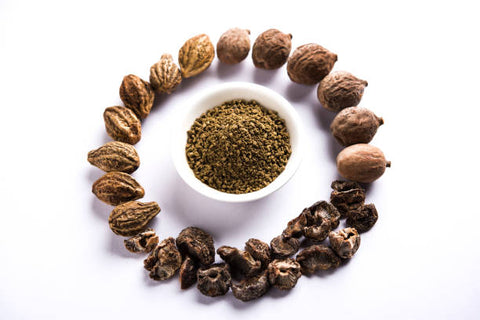Triphala, a revered herbal formulation in Ayurveda, combines the goodness of three potent fruits—Emblica officinalis (Amla), Terminalia bellerica (Bibhitaki), and Terminalia chebula (Haritaki). This harmonious blend has been cherished for centuries for its holistic health benefits. Let's embark on a comprehensive exploration of Triphala, unraveling its characteristics, traditional uses, potential benefits, and considerations for use.
Reference
Baliga, M. S., Meera, S., Mathai, B., Rai, M. P., & Pawar, V. (2019). Triphala and its constituents ameliorate visceral adiposity from a high-fat diet in mice with diet-induced obesity. Altern Ther Health Med, 25(S1), 30-37.
Author: Nikita Vishnoi BCA













